Setting off on your first solo trip can be a life-changing experience, brimming with self-exploration, excitement, and the pure delight of exploring the world on your own terms. Exploring the lively streets of a new city, seeking peace in nature, or immersing oneself in a foreign culture – solo travel offers a world of opportunities. This detailed guide is perfect for new solo travelers looking to have a seamless and enjoyable journey. Exploring how to pack efficiently and select ideal destinations, along with tips on connecting with locals without overspending. Planning to explore bustling cities, serene landscapes, rich cultures, or historic wonders around the world? This guide will help you take the first step towards an unforgettable solo travel adventure.
1. Why Travel Solo?

Traveling solo offers a myriad of benefits and unique experiences. Here are some reasons why you should consider embarking on your first solo trip:
Complete Freedom and Flexibility
When you travel solo, you have the freedom to do whatever you want, whenever you want. You can create your own itinerary, explore at your own pace, and change your plans on a whim. It’s all about you and your preferences.
Self-Discovery and Personal Growth
Solo travel provides an opportunity for self-discovery and personal growth. It allows you to step out of your comfort zone, overcome challenges, and learn more about yourself. You’ll gain confidence, independence, and a greater sense of self-reliance.
Immersion in Local Culture
Traveling alone enables you to immerse yourself in the local culture and connect with the destination on a deeper level. You’ll have more opportunities to interact with locals, try authentic cuisine, and experience local customs and traditions.
Meeting Like-Minded Travelers
Contrary to popular belief, solo travel doesn’t mean being alone all the time. In fact, it’s a fantastic way to meet fellow travelers and make new friends from around the world. You can join group tours, stay in hostels, or participate in activities and events where you’ll meet like-minded individuals.
Flexibility in Budget and Travel Style
Traveling solo gives you the flexibility to tailor your trip to your own budget and travel style. You can splurge on luxury accommodation and fine dining or opt for budget-friendly options. It’s all up to you and your preferences.
2. Choosing the Right Destination

Selecting the right destination is crucial for your first solo trip. Here are some factors to consider when choosing where to go:
Familiarity and Comfort
If you’re feeling nervous about traveling alone, it may be a good idea to start with a destination that feels familiar or comfortable to you. It could be a city or country where you have friends or family, speak the local language, or have visited before. This will help ease your transition into solo travel.
Safety and Security
Safety should be a top priority when choosing a destination for your first solo trip. Research the safety and security conditions of potential destinations, check travel advisories, and read up on other solo travelers’ experiences in those places. Opt for destinations with a low crime rate and a stable political situation.
Solo-Friendly Destinations
Some destinations are more solo-friendly than others. Look for places that have a developed tourism infrastructure and are accustomed to welcoming solo travelers. These destinations often offer a wide range of accommodation options, transportation systems, and activities that cater to solo adventurers.
Personal Interests and Preferences
Consider your personal interests and preferences when choosing a destination. Are you a beach lover, an adventure enthusiast, or a history buff? Do you prefer bustling cities or serene countryside? Select a destination that aligns with your interests and offers the experiences you’re looking for.
Budget and Cost of Living
Your budget will also play a significant role in determining your destination. Research the cost of living, accommodation prices, and transportation costs in different places. Some destinations may be more affordable for solo travelers than others.
3. Researching Your Destination
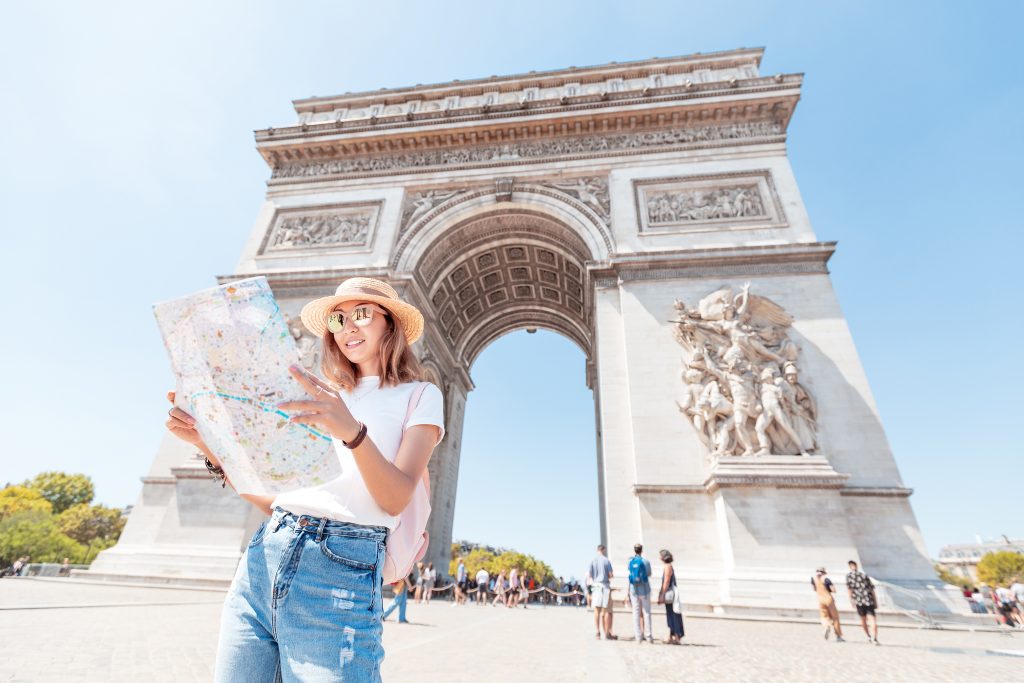
Thorough research is essential when planning your first solo trip. Here are some tips for gathering information about your chosen destination:
Online Resources
Utilize online resources such as travel blogs like TravelOnTV.com, forums, and social media platforms to gather information about your destination. Read personal experiences, travel guides, and tips from other solo travelers who have been to the same place. Join Facebook groups or online communities dedicated to solo travel for valuable insights and advice.
Guidebooks and Travel Apps
Guidebooks and travel apps can be valuable sources of information when researching your destination. Look for guidebooks specifically tailored to solo travelers or those that provide detailed information on safety, accommodation options, local customs, and transportation. Travel apps can also help you find the best places to eat, visit, and stay.
Local Culture and Customs
Learn about the local culture, customs, and etiquette of your destination. Familiarize yourself with basic greetings, gestures, and cultural norms. Understanding and respecting the local culture will not only enhance your travel experience but also help you connect with locals on a deeper level.
Language Basics
Learning a few basic phrases in the local language can go a long way in enhancing your travel experience. Practice greetings, simple phrases, and useful expressions that will help you navigate your destination and communicate with locals. Even if most people speak English, making an effort to speak the local language shows respect and can help you connect with locals.
4. Planning Your Itinerary

Creating a well-thought-out itinerary is crucial for a successful solo trip. Here are some tips to help you plan your itinerary effectively:
Determine the Duration of Your Trip
Decide how long you want your solo trip to be. Consider your budget, available vacation time, and the activities you want to do. Be realistic about the time you have and plan accordingly.
Set Your Priorities
Identify the must-see attractions and experiences you don’t want to miss. Research the best places to visit, landmarks, museums, natural wonders, and local festivals or events. Make a list of your top priorities and allocate time for each of them in your itinerary.
Balance Your Itinerary
Strike a balance between must-see attractions and off-the-beaten-path experiences. While it’s important to visit popular tourist spots, don’t forget to explore lesser-known neighborhoods, local markets, and hidden gems. This will give you a more authentic and immersive travel experience.
Plan for Flexibility
Leave room in your itinerary for flexibility and spontaneity. It’s okay to deviate from your original plan and make last-minute decisions based on recommendations from locals or fellow travelers. Embrace unexpected opportunities and allow yourself to go with the flow.
Consider Your Travel Style
Tailor your itinerary to your travel style and preferences. If you enjoy a slow-paced trip, allocate more time to each destination and include downtime for relaxation and exploration. If you’re an adventure seeker, plan for adrenaline-pumping activities and outdoor adventures.
Research Transportation Options
Research the transportation options available at your destination. Familiarize yourself with the local public transportation system, including buses, trains, and metros. Check if there are any regional or city passes that offer unlimited travel for a certain period, which can save you money.
Plan for Solo-Friendly Activities
Include activities that are solo-friendly and conducive to meeting new people. Join walking tours, cooking classes, or group activities where you can interact with fellow travelers. This will provide opportunities for socializing and making new friends along the way.
Allow for Rest and Relaxation
Don’t forget to include downtime in your itinerary. Solo travel can be exhilarating, but it can also be exhausting. Give yourself time to rest, recharge, and reflect on your experiences. Explore local cafes, parks, or beaches where you can relax and enjoy your own company.
5. Packing Tips for Solo Travelers

Packing light is essential for solo travelers. Here are some tips to help you pack efficiently and minimize the hassle:
Make a Packing List
Create a packing list to ensure you don’t forget any essential items. Divide your list into categories such as clothing, toiletries, electronics, documents, and miscellaneous items. Check off each item as you pack it to avoid leaving anything behind.
Pack Versatile Clothing
Choose clothing items that can be mixed and matched to create different outfits. Opt for lightweight and wrinkle-resistant fabrics. Consider the weather conditions at your destination and pack accordingly. Layering is key to adapt to changing temperatures.
Minimize Toiletries
Pack travel-sized toiletries or transfer your favorite products into travel containers. Consider the weight and size restrictions of your luggage. If possible, purchase toiletries at your destination to avoid carrying heavy bottles or liquids through airport security.
Organize Your Documents
Keep your important documents organized and easily accessible. Make copies of your passport, travel insurance, and other important documents. Store electronic copies in your email or cloud storage for easy retrieval. Have a digital backup of important phone numbers and addresses in case of emergencies.
Pack a Day Bag
Bring a small day bag or backpack for daily excursions. This bag should be lightweight and comfortable to carry. It should have enough space to hold your essentials such as water bottle, snacks, sunscreen, map, guidebook, and a light jacket.
Leave Room for Souvenirs
If you plan on buying souvenirs or shopping during your trip, leave some extra space in your luggage. Consider packing a foldable duffel bag or an extra bag that can be easily stored when not in use. This will allow you to bring back mementos without worrying about exceeding baggage limits.
6. Staying Safe on Your Solo Trip

Safety should be a top priority when traveling solo. Here are some tips to help you stay safe on your solo adventure:
Research Your Destination’s Safety
Before you travel, research the safety and security conditions of your destination. Check travel advisories issued by your government and read up on safety tips specific to the place you’re visiting. Be aware of any potential risks, scams, or common safety concerns.
Share Your Itinerary with Someone
Share your travel plans and itinerary with a family member or a trusted friend. Provide them with copies of your passport, travel insurance, and other important documents. Check in with them regularly and let them know if there are any changes to your plans.
Stay Alert and Trust Your Instincts
Be aware of your surroundings at all times. Trust your instincts and avoid situations or people that make you feel uncomfortable. If something doesn’t feel right, remove yourself from the situation and seek help if necessary.
Use Reliable Transportation
Stick to reputable transportation options such as licensed taxis, ride-sharing services, or public transportation. Avoid unmarked or unofficial taxis, especially at night. Research the local transportation system in advance and familiarize yourself with the routes and schedules.
Secure Your Belongings
Keep your belongings secure at all times. Use a sturdy lock for your luggage and secure it properly. Consider using a money belt or a hidden pouch to keep your money, passport, and other valuables safe. Avoid flashing expensive items and be cautious when using your phone or camera in crowded areas.
Stay Connected
Keep in touch with friends and family back home. Inform them of your whereabouts and check in regularly. Consider purchasing a local SIM card or using international roaming to stay connected. Use public Wi-Fi networks with caution and avoid accessing sensitive information on unsecured networks.
Be Mindful of Alcohol Consumption
Be cautious when consuming alcohol, especially if you’re traveling alone. Drink responsibly and know your limits. Avoid excessive drinking, as it can impair your judgment and make you more vulnerable to theft or other safety risks. If you do drink, do so in moderation and in safe environments.
Trustworthy Accommodation
Choose accommodation options that prioritize safety and security. Research the reputation of hotels, hostels, or guesthouses before booking. Read reviews from other travelers to get an idea of their experiences and ensure that the place meets your safety standards.
Stay Informed and Respect Local Customs
Stay informed about local laws, customs, and traditions. Respect local culture and dress modestly when visiting religious or conservative places. Familiarize yourself with local customs regarding greetings, gestures, and appropriate behavior. Being respectful and mindful of local customs will help you avoid unnecessary misunderstandings or conflicts.
Use the Smart Traveler Enrollment Program (STEP)
Consider enrolling in the Smart Traveler Enrollment Program (STEP) offered by your government. This free service allows you to register your trip with the nearest embassy or consulate. It provides you with important safety updates, travel alerts, and helps the embassy or consulate contact you in case of an emergency.
7. Meeting New People and Making Friends

One of the best parts of solo travel is the opportunity to meet new people and make friends from around the world. Here are some tips to help you connect with fellow travelers:
Stay in Social Accommodation
Choose accommodation options that promote social interaction, such as hostels, guesthouses, or boutique hotels with communal areas. These places often organize social events or activities where you can meet other travelers. Don’t be afraid to strike up a conversation and make the first move in meeting new people.
Join Group Activities or Tours
Participate in group activities or tours that cater to solo travelers. This can be a great way to meet like-minded individuals and share experiences together. Look for walking tours, cooking classes, pub crawls, or group day trips that allow you to connect with fellow travelers.
Use Social Media and Travel Apps
Utilize social media platforms and travel apps to connect with other travelers. Join travel groups or forums on platforms like Facebook or Reddit, where you can ask for advice, share experiences, or even find travel buddies. Use travel apps that allow you to meet fellow travelers or join local events and activities.
Attend Social Events and Meetups
Keep an eye out for social events or meetups happening in the city or area you’re visiting. Check online event listings, local notice boards, or ask the staff at your accommodation for recommendations. Attend language exchange events, cultural festivals, or community gatherings to meet locals and other travelers.
Be Open and Approachable
Approach solo travel with an open mind and be approachable to others. Smile, be friendly, and show genuine interest in getting to know people. Be open to different cultures, perspectives, and backgrounds. Remember that everyone you meet has a unique story to share.
Practice Solo Activities
Don’t be afraid to do things alone. Embrace solo activities such as visiting museums, going for a hike, or enjoying a meal at a local restaurant. Solo activities can be a great way to connect with yourself, reflect on your experiences, and build confidence in your own company.
8. Navigating Language Barriers
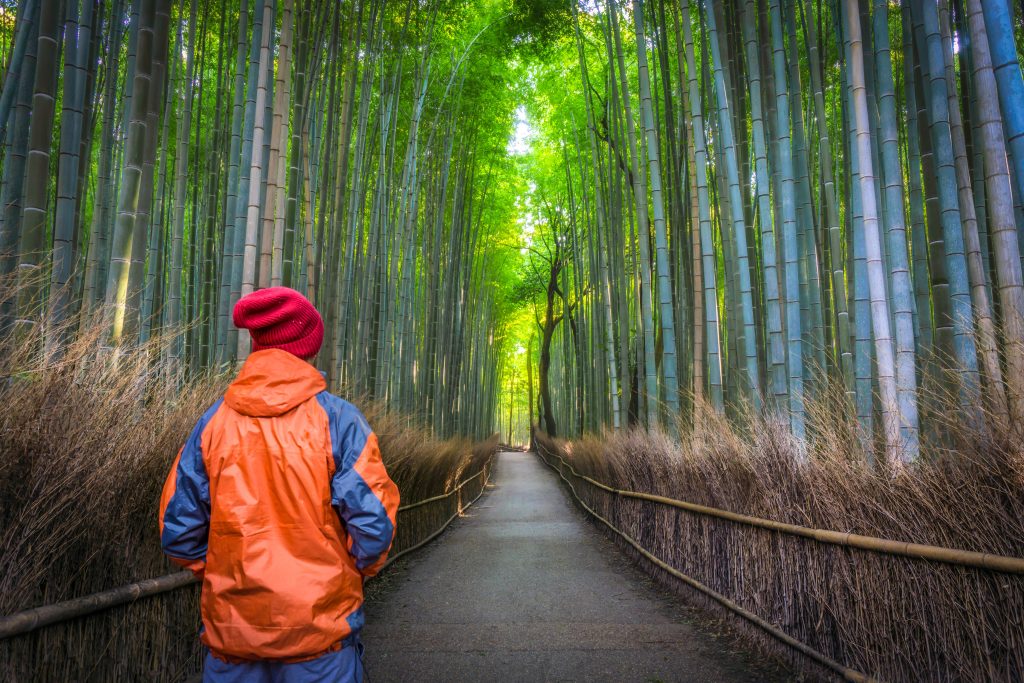
Language barriers can be challenging, but they shouldn’t deter you from traveling solo. Here are some tips for navigating language barriers:
Learn Basic Phrases
Learn a few basic phrases in the local language, such as greetings, thank you, please, and basic questions like “Where is…?” or “How much does it cost?” Even if you don’t speak the language fluently, locals will appreciate your effort and be more willing to help.
Use Translation Apps
Download translation apps or language learning apps that can help you communicate with locals. These apps can translate phrases, words, or even provide audio translations. They can be a lifesaver when you need to communicate in a foreign language.
Use Non-Verbal Communication
Non-verbal communication can be a powerful tool for overcoming language barriers. Use hand gestures, facial expressions, and body language to convey your message. Be patient and understanding, as locals may also use non-verbal cues to communicate with you.
Carry a Phrasebook or Pocket Dictionary
Carry a small phrasebook or pocket dictionary with common phrases and translations. These can be helpful when you need to communicate basic information or ask for directions. You can also use it to write down important phrases or addresses to show locals if needed.
Utilize Technology
Take advantage of technology to overcome language barriers. Use translation apps, voice assistants, or even Google Maps to navigate and communicate. Many smartphones have built-in translation features that can help you translate languages in real-time.
Seek Help from Locals or Tourist Information Centers
If you’re struggling to communicate or understand something, don’t hesitate to seek help from locals or tourist information centers. Locals are often willing to assist and guide you, even if there’s a language barrier. Tourist information centers can provide maps, brochures, or assistance in multiple languages.
9. Accommodation Options for Solo Travelers
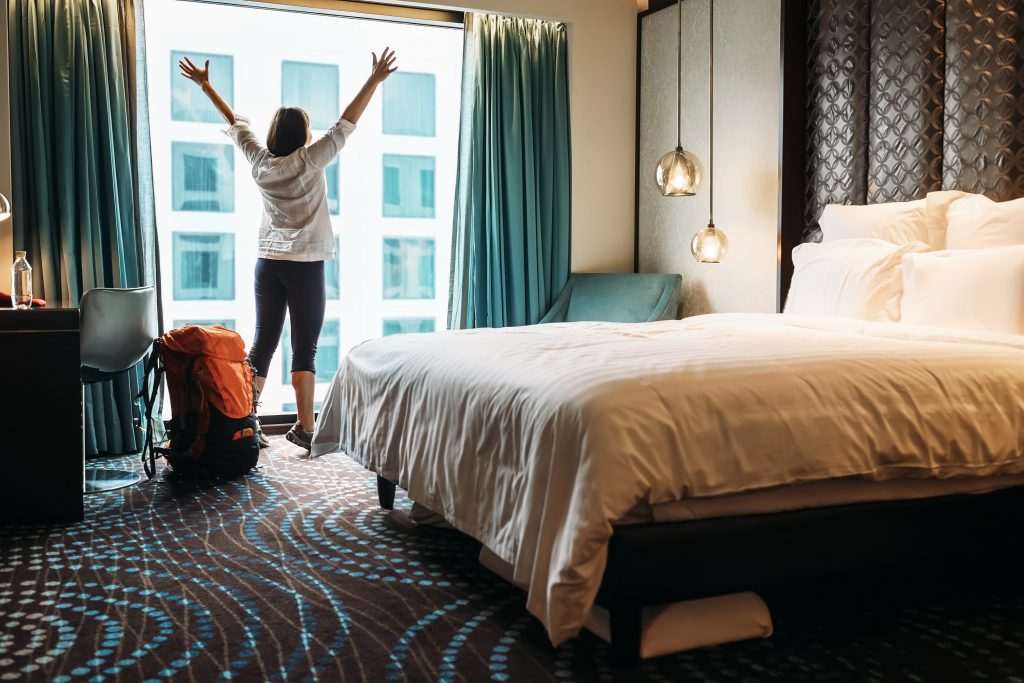
Choosing the right accommodation is essential for a comfortable and enjoyable solo trip. Here are some accommodation options that are popular among solo travelers:
Hostels
Hostels are a favorite choice for solo travelers due to their affordability, social atmosphere, and the opportunity to meet other like-minded travelers. Many hostels offer dormitory-style rooms with shared facilities, as well as private rooms for those who prefer more privacy.
Guesthouses and Bed and Breakfasts
Guesthouses and bed and breakfasts are great options for solo travelers who want a more intimate and cozy experience. These accommodations often have shared common areas where guests can socialize and connect with each other.
Boutique Hotels
Boutique hotels are a mix of comfort, style, and personalized service. They offer a more upscale experience with unique designs and amenities. Some boutique hotels also have communal spaces or organized activities for guests to mingle and meet fellow travelers.
Vacation Rentals
Renting an apartment, studio, or house through platforms like Airbnb can provide a home-away-from-home experience for solo travelers. It allows you to have your own space, cook your own meals, and live like a local. Vacation rentals are particularly great for solo travelers who prefer privacy and independence.
Couchsurfing
Couchsurfing is a hospitality exchange network that connects travelers with locals who offer free accommodation. It’s a unique way to meet locals, experience their culture firsthand, and make new friends. However, it’s important to exercise caution and thoroughly research potential hosts before staying with them.
Solo-Friendly Hotels
Many hotels cater specifically to solo travelers by offering single rooms or providing solo-friendly amenities and services. These hotels often have communal areas, organized activities, or social events where solo travelers can connect with each other.
10. Solo Dining and Trying Local Cuisine

Dining alone can be a delightful and rewarding experience during your solo trip. Here are some tips for solo dining and trying local cuisine:
Embrace Local Food Culture
One of the best ways to experience a destination is through its food. Embrace the local food culture and try traditional dishes, street food, or regional specialties. Visit local markets, food stalls, or restaurants recommended by locals for an authentic culinary experience.
Opt for Casual Dining
When dining alone, opt for casual dining options such as street food vendors, food courts, or casual restaurants. These places are often more solo-friendly and provide a relaxed atmosphere where you can comfortably enjoy your meal.
Join Food Tours or Cooking Classes
Consider joining food tours or cooking classes to immerse yourself in the local cuisine and learn about the culinary traditions of your destination. These activities often provide the opportunity to taste various dishes, meet local chefs, and interact with fellow food enthusiasts.
Take Advantage of Solo-Friendly Dining Options
Many restaurants and cafes nowadays cater to solo diners by offering communal tables, bar seating, or single-person counters. These options make it easier to dine alone without feeling out of place. Look for restaurants that have a welcoming atmosphere for solo travelers.
Research Local Dining Etiquette
Research the local dining etiquette and customs of your destination. Familiarize yourself with common practices such as tipping, table manners, and appropriate behavior. Respect the local culture and follow their lead when it comes to dining customs.
11. Managing Your Finances
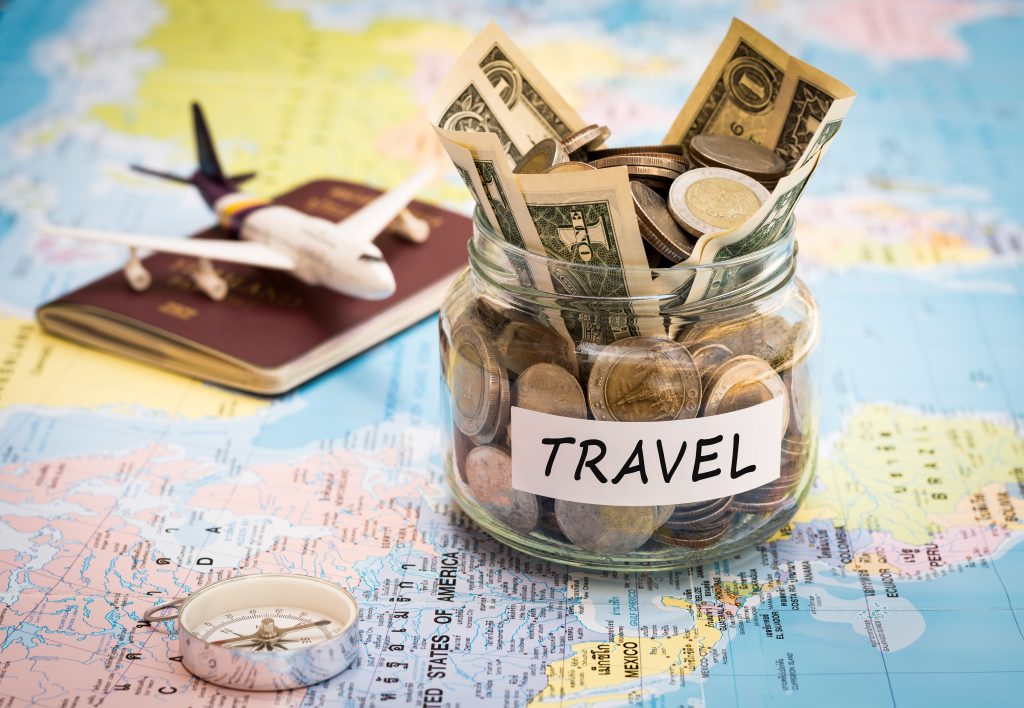
Managing your finances is crucial for a smooth and stress-free solo trip. Here are some tips to help you stay on top of your travel budget:
Set a Realistic Budget
Before your trip, set a realistic budget that includes all anticipated expenses such as accommodation, transportation, food, activities, and souvenirs. Research the average costs of your destination to get a sense of how much you’ll need to allocate for each category.
Track Your Expenses
Keep track of your expenses throughout your trip. Use a budgeting app, a spreadsheet, or a notebook to record your daily spending. This will help you stay within your budget and identify areas where you may need to adjust your spending.
Use Local Currency
When traveling internationally, use the local currency whenever possible. Avoid exchanging money at airports or touristy areas, as they often charge higher fees and offer unfavorable exchange rates. Instead, withdraw cash from ATMs or use a credit card with no foreign transaction fees.
Inform Your Bank and Credit Card Company
Before you leave, inform your bank and credit card company about your travel plans. This will prevent them from flagging your transactions as suspicious and potentially freezing your accounts. Inquire about any fees or restrictions associated with using your cards abroad.
Carry Multiple Forms of Payment
Carry multiple forms of payment, such as cash, debit cards, and credit cards. Keep them in separate locations to minimize the risk of losing everything at once. It’s also a good idea to have a backup source of funds, such as a prepaid travel card or a digital wallet.
Avoid Unnecessary Fees
Minimize unnecessary fees by using ATMs affiliated with your bank or withdrawing larger amounts of cash at once to reduce transaction fees. Be cautious when using your credit card abroad, as some merchants may charge additional fees for foreign transactions.
Research Local Tipping Customs
Research the local tipping customs of your destination. In some countries, tipping is expected, while in others, it may not be customary. Familiarize yourself with the appropriate tipping etiquette to avoid overpaying or inadvertently offending locals.
Keep Emergency Funds
Set aside emergency funds for unexpected expenses or situations. It’s always better to have a financial safety net in case of emergencies, such as medical expenses or last-minute changes to your travel plans.
12. Embracing the Solo Travel Experience
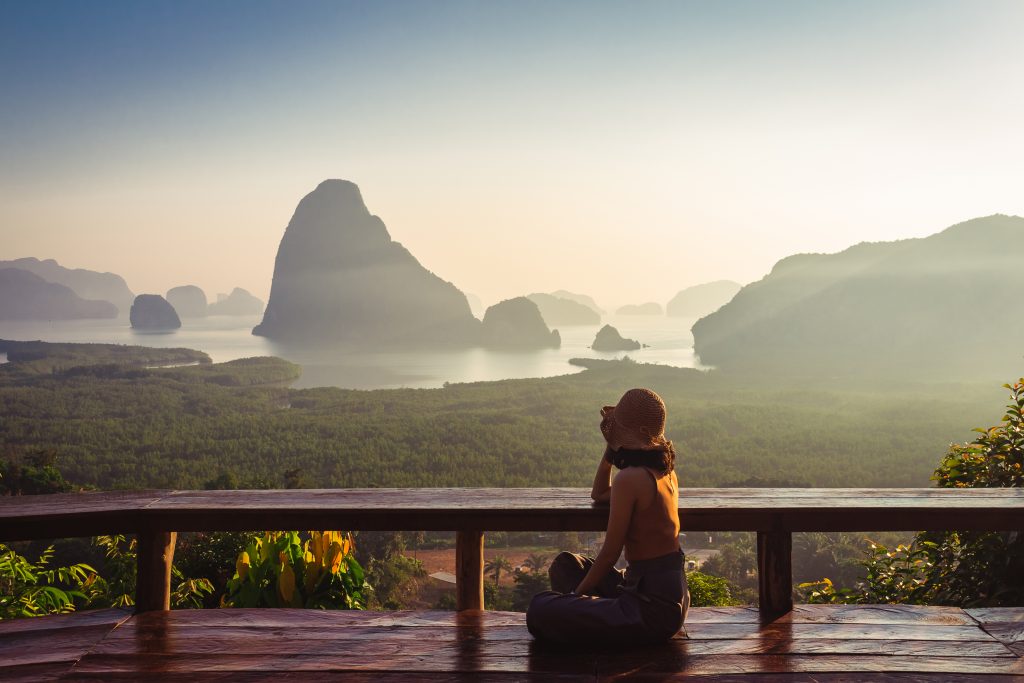
Embracing the solo travel experience is key to making the most of your first solo trip. Here are some final tips to help you fully enjoy your adventure:
Be Open to New Experiences
Embrace new experiences and step out of your comfort zone. Try activities you’ve never done before, taste unfamiliar dishes, or explore off-the-beaten-path destinations. Solo travel allows you the freedom to create your own unique experience, so make the most of it.
Practice Self-Care
Take care of yourself physically and emotionally throughout your trip. Get enough sleep, eat well, and stay active. Take breaks when needed and listen to your body. Solo travel can be exhilarating, but
it can also be challenging at times. Prioritizing self-care will ensure you stay healthy and enjoy your journey to the fullest.
Reflect on Your Experiences
Take time to reflect on your experiences during your trip. Keep a journal to document your thoughts, feelings, and the lessons learned along the way. Reflection can enhance the personal growth aspect of solo travel, allowing you to gain deeper insights into yourself and the world around you.
Stay Positive and Patient
Traveling solo can come with its set of challenges, from navigating unexpected situations to dealing with loneliness. Maintain a positive attitude and be patient with yourself and others. Challenges can often lead to the most memorable and rewarding experiences.
Celebrate Your Independence
Celebrate the fact that you’ve taken the step to travel solo. It’s a significant achievement that demonstrates courage, independence, and a desire to explore the world on your own terms. Recognize the strength it takes to embark on a solo journey and be proud of yourself.
Stay Flexible
One of the greatest benefits of solo travel is the flexibility it offers. Be open to changing your plans based on new opportunities or recommendations from locals and fellow travelers. Staying flexible can lead to unexpected adventures and discoveries.
Connect with Nature
Take the opportunity to connect with nature during your solo trip. Whether it’s a peaceful hike in the mountains, a relaxing day at the beach, or a quiet moment in a city park, spending time in nature can be incredibly rejuvenating and grounding.
Embrace Solitude
Learn to embrace solitude and enjoy your own company. Solo travel provides a unique opportunity to spend time with yourself, free from the distractions of daily life. Use this time to introspect, meditate, or simply enjoy the peace and quiet.
Seek Out Local Experiences
To truly embrace the solo travel experience, seek out authentic local experiences that allow you to immerse yourself in the culture and daily life of your destination. Attend local events, eat at local restaurants, and interact with locals whenever possible.
Be Grateful
Finally, be grateful for the opportunity to travel solo and for the experiences and people you encounter along the way. Solo travel is a privilege that offers endless opportunities for growth, learning, and adventure. Cherish each moment and carry the memories and lessons learned with you long after your trip ends.
As you conclude your first solo travel trip, remember that the journey is as much about the internal discoveries as the external adventures. Solo travel is not just about the destinations you visit but the personal growth and independence you gain along the way. Embracing solo travel as your new best friend opens a world of opportunities, from enjoying a coffee in a quaint shop in a foreign country to embarking on a day trip that wasn’t part of your original travel itinerary. The best advice for solo travelers is to remain open, flexible, and ready to embrace the unexpected. As you reflect on your journey, know that each step, from the planning phase to finding your way back home, has contributed to a richer, more fulfilling experience. Solo travel may seem daunting at first, but with these best tips and a spirit of adventure, you’re well on your way to becoming a seasoned solo traveller, ready to explore new destinations, meet new people, and collect stories and experiences that will last a lifetime.